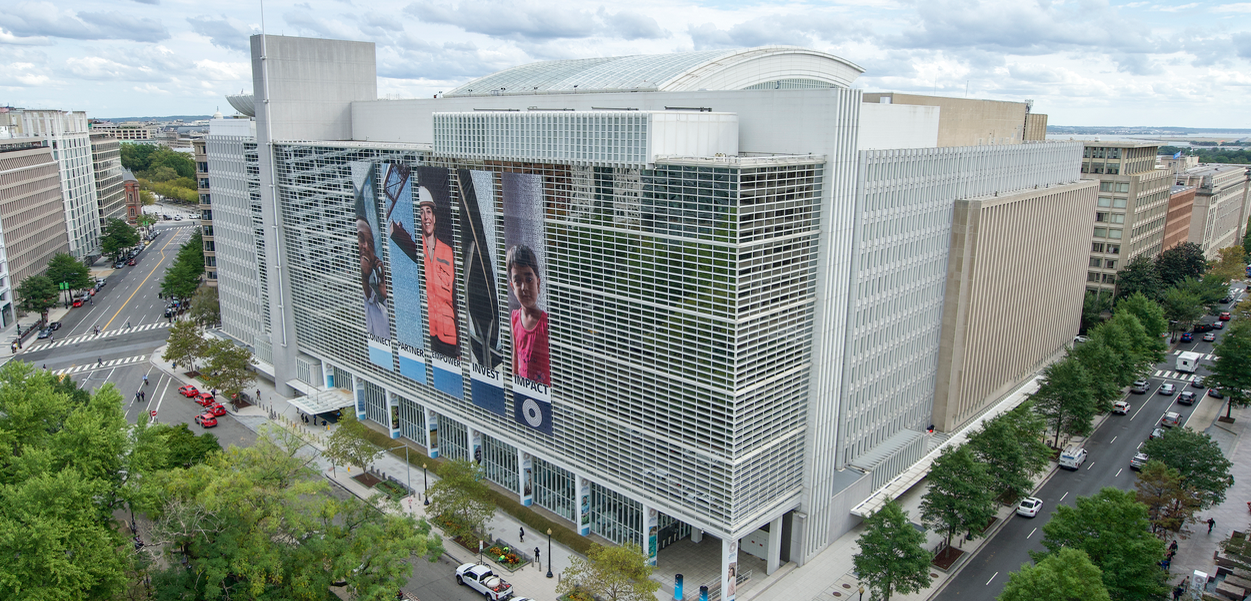 世界银行华盛顿总部
世界银行华盛顿总部
I would like to provide another update on some of the work underway at the World Bank Group to address the COVID-19 pandemic and other significant development challenges.
The pandemic is hitting developing countries hard, and the inequality of that impact is clear. From declining remittances to the collapse of the formal and informal markets, the pandemic has disproportionately impacted the world’s poorest, especially women and children. It threatens to push over 100 million people into extreme poverty and is exacerbating inequality throughout the world. The negative impact on health and education may last decades—80 million children are missing out on essential vaccinations and over a billion are out of school.
COVID-19 Operational Response
While numbers don’t tell the whole story, they give a sense of what we are accomplishing in countries during this unprecedented crisis. Our emergency health support has reached 111 countries, and we are making good progress toward the announced 15-month target of $160 billion in World Bank Group commitments and mobilization by the end of FY21, much of which is going to the poorest countries. World Bank Group support—across IBRD, IDA, IFC and MIGA—is helping countries provide critical goods and services and working toward a sustainable recovery.
For instance, we are assisting Ethiopia in procuring medical supplies and equipment, building diagnostic capacity and training, and improving health screening. In Tajikistan, our support is helping expand intensive care capacity and provide temporary social assistance for the most vulnerable households.
We are working on the secondary effects of the health impact and are committed to the fair and equitable distribution of any potential vaccines. We want to make sure that developing countries are not left behind when it comes to critical access, including the financing of and technical support for diagnostics, therapeutics and vaccines. These are key goals of our COVID-19 emergency health operations and can draw on our deep experience in this field including the fight to eradicate polio.
The IFC has recently launched a $4 billion Global Health Platform to provide financing to manufacturers of healthcare products and help developing countries increase access to the critical healthcare supplies required to fight the pandemic, including masks, ventilators, test kits and, ultimately, vaccines.
Lebanon
The August 4 explosion in Beirut was devastating, causing a deep human tragedy. To help guide the urgently needed global response, we conducted a Rapid Damage and Needs Assessment (RDNA) that will mobilize aid, working with the UN, the European Union, Lebanese ministries, civil society organizations and other key stakeholders.
According to preliminary estimates, the explosion caused up to US$4.6 billion in damage to infrastructure and physical assets. Reconstruction efforts will need to cover rehabilitation and reconstruction of damaged buildings and infrastructure, but also the rebuilding of institutions and governance structures. Our assessment lays the groundwork for a reform, recovery, and reconstruction plan that puts the needs of the Lebanese people first.
Protecting and Investing in People
Last Wednesday, we launched the Human Capital Index: 2020 Update report, detailing how the COVID-19 pandemic is threatening to wipe out a decade of hard-won progress in education and health, particularly in the poorest countries.
As countries look to protect and invest in people and pave the way for a better future for children, we need ambitious, evidence-driven policy measures that address important human capital issues, including health, survival rates, reduced stunting, and educational access.
For example, our education programs aim to help countries restart learning by providing COVID-19 protective equipment to make the reopening of schools safer; and by supporting more effective distance learning where needed. In Jordan and Turkey, we are supporting the development of TV and digital content for blended teaching and learning for the new academic year, as well as counseling and remedial courses. In Bangladesh, Burkina Faso, and Nepal, we are supporting the development of school safety and hygiene protocols and providing basic sanitization and hygiene supplies.
Debt
Together with the IMF, we are making progress on debt transparency and relief, so countries can create fiscal space on debt repayments and channel it to where it is most desperately needed —including on education, health, and social safety nets.
In May, the G20 announced a moratorium on debt repayments to official bilateral accounts. That’s been partially successful and is a good first step in providing cash flow relief to countries. While the DSSI has opened some fiscal space for participants, it is important for all official bilateral creditors, including national policy banks, to implement the DSSI in a transparent manner.
The G20 also asked commercial creditors to participate in debt relief for the poorest countries, but little progress has been made. I was able to highlight the need for their participation in debt relief in the Financial Times last week, urging both commercial creditors and non-participating bilateral creditors to consider the long-term well-being of the world’s poorest nations and peoples. The current debt payment moratorium is too shallow to provide light at the end of the debt tunnel, and we need to lay the foundations for debt reduction that will help restart growth and investment.
Resilient Recovery
I look forward to the conversations around our first virtual WBG-IMF Annual Meetings next month. The theme is “what it will take to achieve a resilient recovery.” In addition to our formal discussions with Governors, during the week we’ll discuss human capital, climate, digital development, and additional steps on debt to free up resources for those priorities. With countries facing multiple challenges to a resilient and sustainable recovery from the COVID-19-triggered economic crisis, we are focused on broad action for effective impact. This includes further shifting resources to priority areas, putting high-quality knowledge at the center of our operations, and finding new ways to innovate and deliver even better results.
As we gear up for a busy month, I want to thank our staff and partners for continuing to work hard under difficult circumstances. We need to focus on what we can do, and on the actions we can take to get to the other side of this pandemic. There are many daunting obstacles ahead, but we should bring a positive attitude, energy and innovation to help meet the challenges.


Join the Conversation